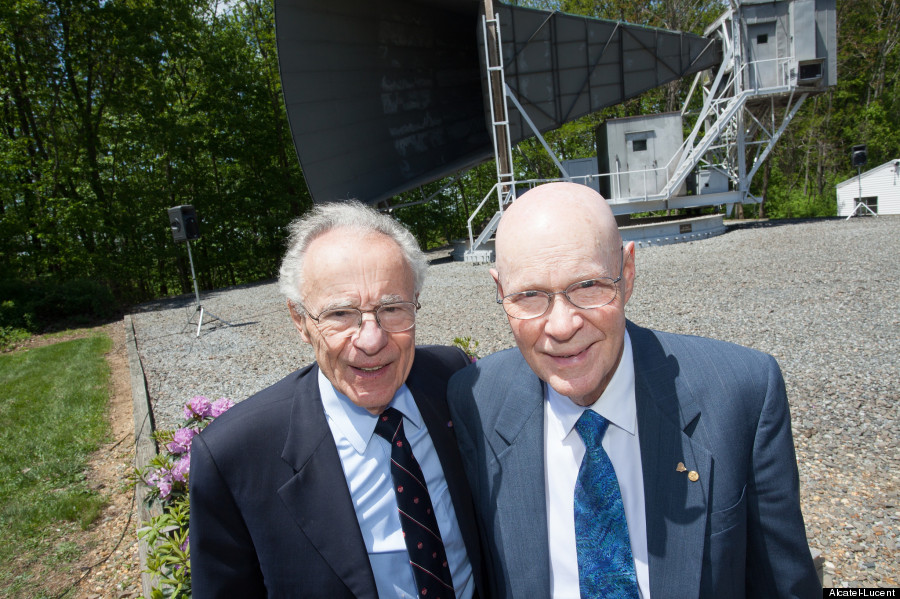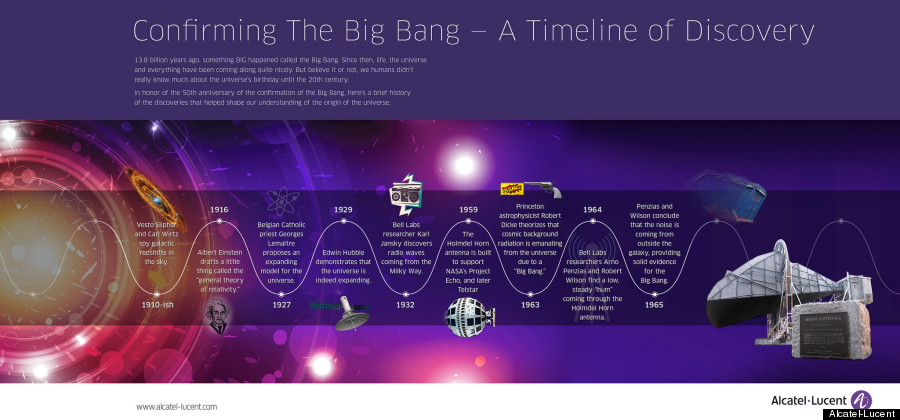Today the Big Bang theory is accepted as scientific fact. That wasn't the case a half-century ago, when a young radio astronomer named Robert W. Wilson set out to do some simple measurements using a huge new horn-shaped antenna that had been erected on a hilltop in Holmdel, N.J.
Back then many scientists subscribed to the "steady state" theory, which held that the universe had always existed in roughly its current form. The Big Bang theory, of course, holds that the universe originated from a single point billions of years ago and has been expanding ever since.

Robert Wilson (right) and his former Bell Labs research collaborator, Arno Penzias, standing in front of the horn antenna in Holmdel, N.J. on May 20, 2014. In 1964 they used the antenna to discover the cosmic microwave background radiation.
Wilson and his collaborator at Bell Labs, Arno Penzias, weren't looking to verify the Big Bang theory back in 1964. But that's exactly what they did when they stumbled upon the cosmic microwave background (CMB)--faint radiation that could only have been created by the Big Bang.
"We were really trying to measure zero," Wilson told HuffPost Science in a recent interview, referring to the fact that he and Penzias hadn't expected the antenna to detect a signal indicating background radiation. Instead, he said, "We discovered that wherever we looked there were radio waves coming at us that we didn't expect--effectively that the universe is full of radio waves. And as it's turned out, those originated in the Big Bang and they fill the universe."
The discovery was a big deal--big enough to earn Wilson and Penzias the Nobel Prize for physics in 1978. Yet Wilson, now 78, remains the same humble, soft-spoken scientist he was back in the day. And he's still active, now working as a senior scientist at the Harvard-Smithsonian Center for Astrophysics in Cambridge, Mass.
During the wide-ranging interview, held following a ceremony in Holmdel marking the 50th anniversary of the discovery, Wilson recounted the CMB finding, weighed in on some of today's unanswered scientific questions, and explained how our understanding of the Big Bang has evolved.
Listen to the entire interview below.
The interview was broadcast on Sharon, Connecticut radio station WHDD/Robin Hood Radio.

